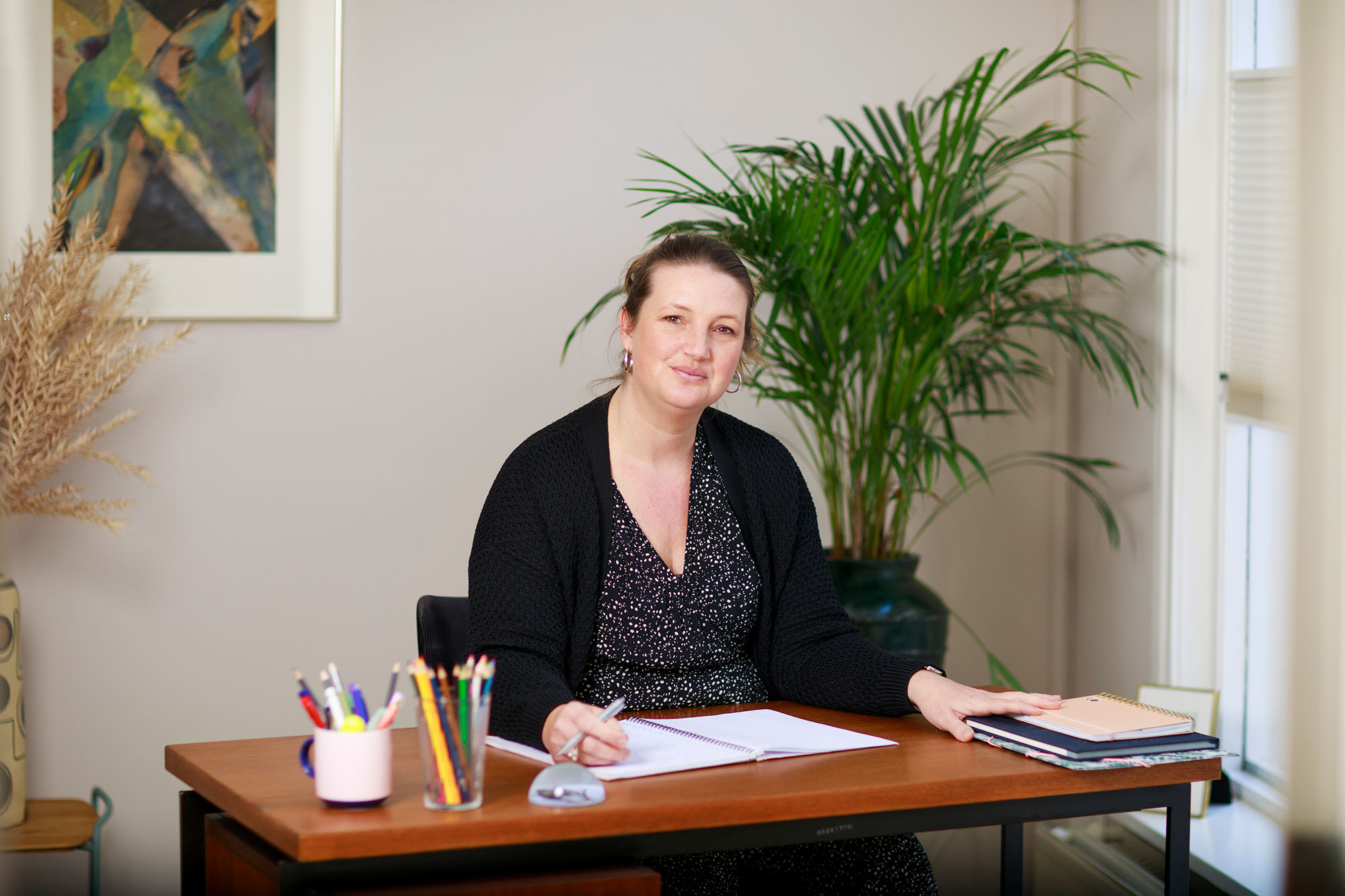Who is Natascha?
In 2005 I graduated (cum laude) as a Clinical Developmental Psychologist from the University of Amsterdam. After my studies, I first worked for 2 years in the Gooi and Vecht region and then for 4 years in The Hague at mental health institutions for children and young people. During the last two years in The Hague, I followed the post-master training as a Healthcare Psychologist (GZ psychologist) at the RINO South Holland. Since 2011, I have been able to call myself a healthcare psychologist and I am registered in the BIG register.
After completing my education, due to a unique opportunity, I moved to San Francisco (California), with my partner, where we lived for 5 years. During this time I worked as an ABA therapist (Applied Behavioral Analysis) with children with an autism spectrum disorder or a neurological disorder.
In 2016, my partner and I returned to the Netherlands with two children. From that moment on I started working at the Opvoedpoli (Parenting Clinic), where I was also seconded for some time as a Youth Psychologist to a Parent and Child Team (OKT).

Within the Opvoedpoli I worked with clients who often had multiple and/or complex problems (specialized mental health care). However, occasionally there were clients with singular problems (basic mental health care) or a question regarding child rearing (youth care). Within the Opvoedpoli, my work largely consisted of directing the assistance programs that we set up together with colleagues. I also performed diagnostic research and offered guidance/treatment to children/adolescents and their parents.
At the beginning of 2021, I took the step to set up my own practice in addition to my work at the Opvoedpoli, where I was able to create more treatment space and where I started working with (young) adults. In March 2022, I left the Opvoedpoli and now I'm focusing entirely on my own practice. Since a multidisciplinary team certainly has added value for me, I am happy that I can also call on very nice, very experienced colleagues within my own practice.
The practice vision - In Mijn Humm
You might have heard Dutch people say, "Ik ben vandaag niet zo in mijn hum", which is a Dutch expression that roughly translates to "I'm not in a good mood today." Hum (abbreviation for humeur) then stands for mood. The aim of the treatments in my practice is to help you, your child or your family get started and to provide you with tools to feel better about yourself and function better again. So that you can ultimately say that you are "in good spirits" again.
No, there is no spelling mistake in the practice name. It really says humm with double-m; derived from the English word "hummingbird". Since I was introduced to this bird in California, America, it has become my favorite. The hummingbird can have all kinds of beautiful, bright colors; a pleasure to watch. In addition, the hummingbird has a special way of flying. Not only can it move forward, but because of its rapid wing beat it can also fly backwards and stay in one place for a long time. For that reason it is also labeled as the helicopter among birds. There is an interface there with my work, in which it is important to be able to take a helicopter view. From that helicopter, as a practitioner and researcher, you can look from a distance at the question/problem, the context (such as the cultural background) and the therapeutic relationship, which allows you to better consider the situation and find other perspectives.

Looking at the context can (among other things) relate to the question/problem, to the client or family or to the therapeutic relationship. A problem or question never arises in an isolated environment. Just as we humans generally do not live in isolation, but always have to deal with a society or a network. No matter how big or how small these may seem. The environment, the person and their problem are influenced by each other and for that reason I believe it is important to pay attention to all these aspects. In practice, this means, for example, that we can have broader conversations than just focusing on what is not going well. We can also look for things that are going well and investigate what helps. Perhaps these aspects can also have a positive influence on things that are not going well. It could also mean that we discuss with each other whether other people from your environment should be involved in the treatment. For example, if a child/adolescent requests treatment, we will always work with the parents/guardians. For (young) adults it can be of added value to involve a possible partner in addition to parents. In such situations it may be desirable to seek cooperation with the systemic therapist or family coach.
Practice Documentation
Below you will find some of the required documentation for my practice, in addition to the privacy statement and the practice vision.
- Internal Privacy Policy - View In Mijn Humm's privacy policy for information about the processing of (special) personal data according to GDPR.
- Quality Statute - View the approved quality statute with information about our working methods and quality requirements.
- Reporting Code - View the Reporting Code for domestic violence and child abuse, including the steps and child check.